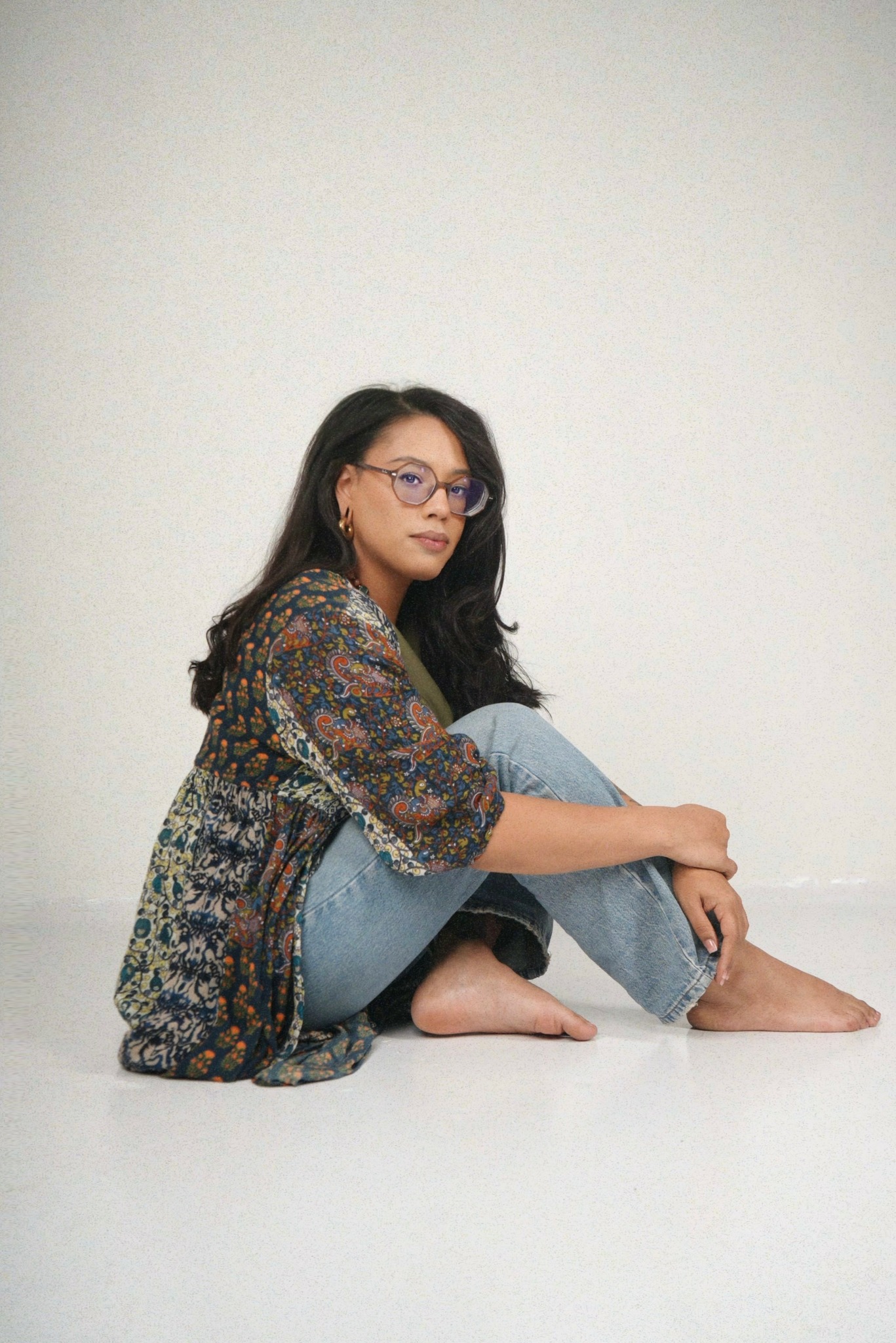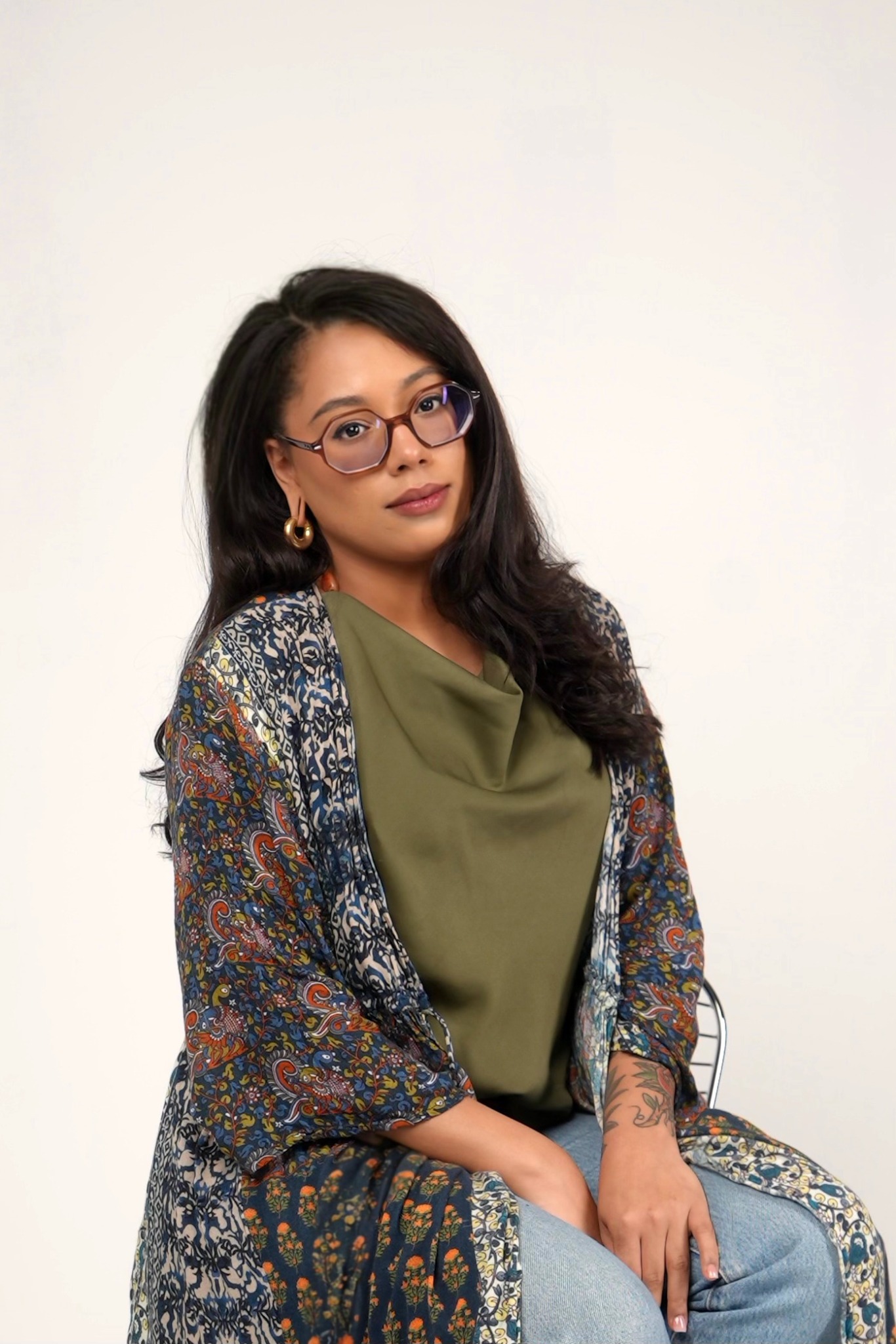We caught up with the brilliant and insightful Destinie Cleveland a few weeks ago and have shared our conversation below.
Destinie, thanks for taking the time to share your stories with us today What’s one of the most important lessons you learned in school?
I first learned one of the most important lessons of my education while sitting across from my freshman-year advisor in high school. We were filling out my schedule, and when it came time to pick an elective, I hesitated. I was in a STEM program but I also loved orchestra and the arts. The advisor paused and told me something simple that stuck: electives were not just boxes to check. They were opportunities to explore, and exploration was often how people found what felt certain.
That perspective carried me forward. At the community college level I took it to heart and signed up for a wide range of classes such as psychology, film, and even one on serial murder. Each subject opened a new door, and through that process I discovered behavioral health science. What began as curiosity turned into a passion for understanding substance use and eventually led me toward the helping professions.
By the time I was in my master’s program in clinical mental health counseling at UNLV, exploration had become the foundation of my growth. The program encouraged us to try on different theories and modalities. While I started with a focus on substance use and recovery, my work in residential and outpatient settings revealed how deeply trauma shaped those struggles. Allowing myself to keep exploring rather than rushing to certainty helped me discover where I truly felt called: trauma-focused therapy.
Looking back, that lesson has stayed with me because it reshaped how I view uncertainty. It is not a weakness. It is an opening. Exploration gave me clarity, and it continues to guide me in both who I am as a professional and the kind of work I feel called to do.

Destinie, love having you share your insights with us. Before we ask you more questions, maybe you can take a moment to introduce yourself to our readers who might have missed our earlier conversations?
As I mentioned in the previous question, one of the earliest and most important lessons I learned was the value of exploration. That mindset has not only shaped me personally but has also guided how I entered and grew within the mental health and wellness field.
I started at the community college level, giving myself permission to try a wide range of courses until I found what resonated. That openness eventually led me into behavioral health science, where I became fascinated by the neuroscience of substance use, and later into my master’s studies in clinical mental health counseling at the University of Nevada, Las Vegas. Through both my academic training and professional experiences, I came to recognize trauma as the constant thread running through so many of the struggles people face. That realization is what led me to my current identity as a trauma-focused somatic therapist.
Today, through Ominira Therapy, I offer care that integrates somatic approaches, EMDR, DBT-informed skills, mindfulness, and narrative practices. My focus is on helping people reconnect with their bodies, reclaim their voices, and build grounded relationships with themselves and others. Beyond direct therapy, I also lean into my creative and artistic side. I bring elements of expressive arts and body-based exploration into my work, drawing from the understanding that healing and self-discovery can come not only through words but also through movement, imagery, sound, and creative expression.
What sets me apart is the way I bring together rigorous clinical training, creative exploration, and respect for cultural and ancestral wisdom. My work is rooted in ethics and sustainability, and I am committed to building systems of care that honor both clients and practitioners.
I am most proud of the fact that my work continues to expand without losing its depth or authenticity. Whether I am in session with a client, creating resources, or developing new offerings, my commitment remains the same: to create space for reflection, integration, and meaningful change.
The main thing I want potential clients, readers, or collaborators to know is that my work is not about quick fixes. It is about honoring the complexity of human experience and making room for clarity, possibility, and growth within it.
Have any books or other resources had a big impact on you?
One resource that has shaped my thinking is If Disney Ran Your Hospital by Fred Lee. What stayed with me was its focus on experience and systems, and how much meaning people carry with them from the way care is structured. It reinforced my belief that healing is not only about interventions, but also about the environment of care and the attention given to each detail of that experience.
I’ve also been influenced by thinkers like Gabor Maté, who writes on trauma and authenticity, and bell hooks, who frames love as a practice of freedom. Their work reminds me that any model of care must remain rooted in compassion, humanity, and depth.
Together, these influences shape my philosophy for Ominira Therapy: care should be ethical, sustainable, and deeply human. For me, that means centering the therapeutic alliance and ensuring clients feel not only supported through interventions, but also truly held in the quality of the space we build together.
What’s been the most effective strategy for growing your clientele?
The most effective strategy for growing my clientele has been creating an online presence grounded in clarity, consistency, and authenticity. Because Ominira Therapy is exclusively telehealth, my website is the front door to my practice. I knew it had to do more than list services — it needed to give potential clients a genuine sense of who I am as a provider and how therapy with me might feel.
I designed the site and my overall digital presence to reflect the same qualities that define the therapeutic alliance. The way information is presented, the tone of the language, and the inclusion of resources all work together to reduce uncertainty and help clients feel oriented before we ever meet.
This intentional approach has been the foundation of growth. It establishes trust from the very first point of contact and allows the alliance to begin forming well before a session even starts.
Contact Info:
- Website: https://OminiraTherapy.com
Image Credits
IG @ Vehgus


